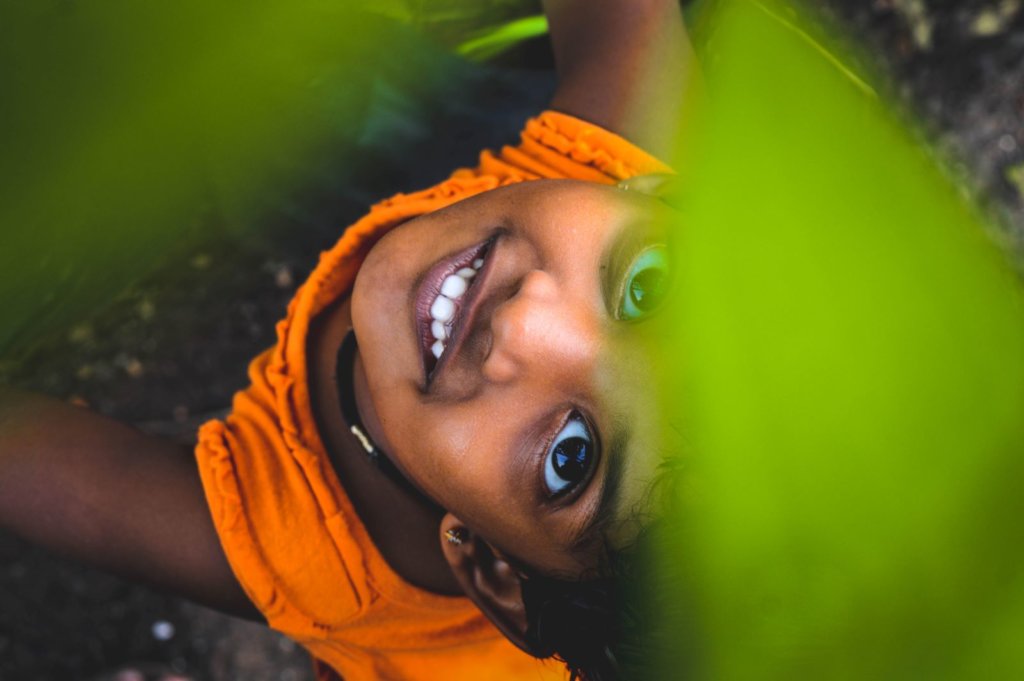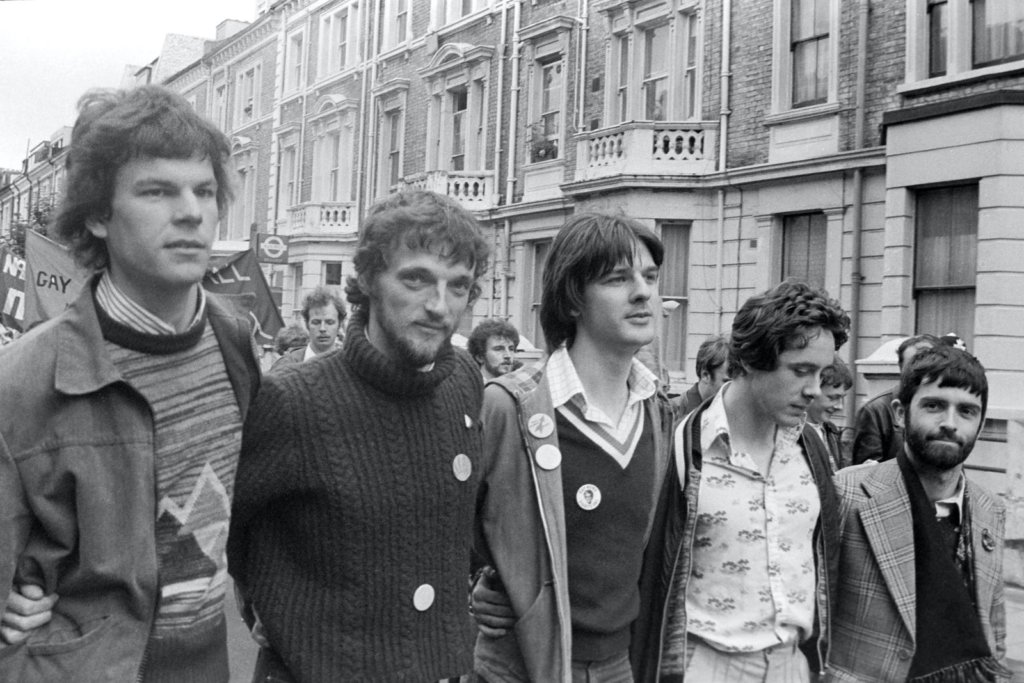All week I’ve been thinking about the starfish story. If you don’t know what I’m talking about, the story goes like this: One day a man was walking along the beach littered with starfish, also called sea stars. He noticed a girl picking them up gently throwing them back into the ocean. Approaching the girl, he asked, “What are you doing?” She replied, “Throwing starfish back into the ocean. The surf is up and the tide is going out. If I don’t throw them back, they’ll die.”
The man said, “Don’t you realize there are miles and miles of beach and hundreds of starfish? You can’t make a difference!” After listening politely, the girl bent down, picked up another sea star and threw it back into the ocean. Smiling at the man she said, “I made a difference for that one.”
I love this story because it’s the reminder you don’t have to save all the sea stars, or all the people, or all the animals, or all the whatever. Even one life matters. It’s hard for me to remember that because instead I think of quantity. Quantity is what’s encouraged in our capitalistic culture. “How many views did that blogpost get?” “How many followers do you have?” “How big is your email list?” We think in terms of quantity because quality is hard to, well, quantify. How do you measure if listening to a song brought a person to tears? Or reading a book changed someone’s life? You can’t really. We try by saying, “Well, it was popular. It went viral,” but lots of things go viral.

Photo by Pedro Lastra on Unsplash
A compilation video of cats freaking out when they see cucumbers has gone viral – 24 million views and counting – but has anyone’s life changed as a result? I’m not saying there’s anything wrong with cat videos, I’m merely pointing out whether something is viral is not a good measure of its quality. I have to keep reminding myself of this because otherwise I get too fixated on the end result. I start thinking about all the sea stars littered across the beach instead of the one in front of me, so to speak. And the one in front of me matters. It matters because every life is precious and also because every person cares about what happens in their life. We are all a little self-centered, in a good way.
What I have to keep coming back to is why am I even writing in the first place? Sometimes I write just for me. But the writing I make available for public consumption is for me and for others. My spiritual teacher said:
“In every expression, in every stratum of this universe, however crude or subtle, only one refrain prevails, and that refrain is the attainment of bliss. In that artistic movement toward welfare both the attainment and the bestowal of happiness find simultaneous expression. When litterateurs dedicate themselves to the service or practice of literature, they have to let their creative genius flow in this very current: They have to cleanse all that is turbid, all that is inauspicious in individual life in the holy waters of their universal mentality, and then convey it sweetly and gracefully into the heart of humanity.”
When I write the things that matter to me, I’m trying to touch the heart of humanity. I’m trying to share my experience, strength, hope, and perspective in an effort to let people know they’re not alone. Or to get them to entertain a new perspective. Or open their hearts a little more. When I lose sight of my intention, that’s when I start thinking it only matters if I hit a certain threshold of popularity. But it doesn’t. Because like the girl throwing sea stars back into the ocean, I may not be making a difference for a million people, but I’m making a difference for at least one. And that’s something.
I dream of a world where we remember quantity isn’t everything. A world where we remember quality counts. A world where we keep in mind our intentions. A world where we stay close to the “why” of our actions and use that as motivation to propel us forward.
Another world is not only possible, it’s probable.
I had a conversation with a friend this weekend and was reminded that believing in materialism is a choice. We in the West take it for granted that materialism is the most scientific, rational way of being and that conversely, spirituality is unscientific and irrational. But is that really true?
First, some definitions. Materialism is the theory or belief that matter is the fundamental substance in nature, and that all things, including mental states and consciousness, are results of material interactions. Spirituality is the theory or belief that there is more to life than meets the senses, and more to the universe than just purposeless mechanics. It also involves believing in a higher form of intelligence or consciousness.
Spirituality can be studied and one way to do so is through psychic phenomena. For instance, the feeling that someone is staring at you. Did you know that numerous scientists have run experiments on exactly that? The basic setup is a starer sits a few yards away from a staree. The starer flips a coin that determines whether or not they will stare at the staree. The staree then responds that yes, they are being stared at, or no, they are not. In a total of 33,357 trials of this experiment, the overall success rate was 54.5%, meaning 54.5% of the time, the staree guessed correctly. Left purely to chance, the success rate would have instead been 50%.

Isn’t this image great? Photo by Science in HD on Unsplash
As you can likely infer from the number of experiments – more than 33,000 of them – the setups have varied. Some people were separated by windows, some were stared at over a one-way video circuit, and some had a person sit in an electromagnetically sealed chamber! Yet despite the scientific proof over and over again showing extrasensory perception is real, skeptics say the experiments are flawed or fraudulent. They have no evidence to their claims but they hold on to their perspective anyway. I ask you, were all 33,357 trials “junk” science? Why is it so hard to believe psychic phenomena is real? It’s only hard to believe if you’re a hardcore materialist because in that worldview, psychic phenomena cannot exist.
People are welcome to believe what they want, but let’s not pretend materialism is the most rational and scientific way of being when science itself shows there’s more to life than what can be sensed with the eyes, ears, nose, mouth, and skin. Let’s also not pretend science and spirituality are silos when in fact, they can support one another, and also some spiritual teachers (like my own) welcome science.
My spiritual teacher said “science is indispensable for human progress.” And also that, “[W]e should probe for solutions to problems through the proper cultivation of science. . . No matter how complicated problems are, we have to evolve the necessary scientific means to meet the challenge.”
Science can be interlaced with spirituality. They don’t have to be separate. They can support one another and spirituality can motivate science. Aren’t people curious about the world? About the mysteries of creation? If we keep beating the drum that materialism is all there is, we miss out on explaining what is currently unexplained. We sell ourselves short and limit ourselves as well as our own understanding. That doesn’t seem very scientific to me.
I dream of a world where we understand materialism is only one way of looking at the world. A world where we realize spirituality can be just as scientific as materialism. A world where we use spirituality to propel scientific innovation and solve the greatest challenges facing us today.
Another world is not only possible, it’s probable.
A few weeks ago, I wrote that I feel sad regarding this pandemic. Now instead of sad, I’m angry. I hate this freaking pandemic. I hate that I haven’t been in the presence of another person without a mask in MONTHS. MONTHS. Yes, I’m going on walks with people, yes, I’m doing a lot of socializing virtually, but I just want to sit in the presence of another person and see their whole face. Is that too much to ask?
Frankly, I understand the appeal of the anti-masker, “plandemic” philosophy. It’s much more appealing to believe the pandemic is a completely made up thing that the government created in an effort to control humanity rather than the alternative. Because the alternative is this – not getting together with friends and family for the holidays, not seeing smiles on the faces of people you love, not touching each other. It SUCKS.

I purposely chose reddish paint swatches. Photo by Brett Jordan on Unsplash
So heck yeah I’d like to pretend none of this is real. Why am I sharing this? Because I ascribe to psychotherapist Michael Eigen’s philosophy. He wrote in his book Feeling Matters:
“As long as feelings are second-class citizens, people will be second-class citizens. Experience is an endangered species. An important function of psychotherapy is to make time for experiencing. Psychic taste buds really exist and rarely rest. They feed us each other, gauge states of being, states of spirit. We taste each other’s feelings and intentions.”
This is me offering up my state of being, my state of spirit. It’s not fun, it’s not pretty, but it’s real. And if anger remains unexpressed, it can turn into depression, which explains how I’ve felt this week watching holiday movies and realizing I will not have any of those experiences. I will not be at a holiday party. I will not be opening gifts with my siblings. I will not have a big indoor dinner with anyone. At first it depressed me but now I’m mad. I’m giving a big middle finger to this pandemic because it deserves it.
At the same time because life is complicated, I’m also grateful for the pandemic. This weekend I organized a Zoom call with the young people in my yoga and meditation group and we had attendees not only from the U.S., but also Mexico, Brazil, Portugal, Italy, Germany, and Denmark. I’m not sure that would have happened if we weren’t forced to socialize over the internet. Similarly, I’m seeing several of my college friends every week as we gather for a virtual Shabbat service. That also wouldn’t have happened without this pandemic.
Life is weird and complicated. And that means I can feel profoundly pissed off as well as profoundly grateful. Both can be true. I think being a fully functional adult means holding the paradox over and over again. It means allowing opposing things to occupy the same place. It means recognizing nuance. It means seeing shades of gray. And it also means creating space for our feelings.
I dream of a world where we express our emotions. A world where we feed our psychic taste buds. A world where we allow ourselves to feel happy and sad and angry and grateful and whatever else arises. Because ultimately we know life is nuanced.
Another world is not only possible, it’s probable.
I have to admit, I’m relieved the election is over and also that Biden won. I danced with joy and cried watching Kamala Harris give her speech on Saturday night. However, I know other people feel differently. There’s a part of me that still doesn’t understand how people can vote for a man who literally puts children in cages. Or how Kentucky residents reelected Mitch McConnell who laughed, laughed! when his opponent Amy McGrath criticized him for holding up a COVID-19 relief bill.
Are Kentuckians not suffering? Are they all employed and unaffected by the pandemic? Obviously not, so why would they vote for a man who clearly doesn’t care about their wellbeing? The first answer is that people like the familiar even if it’s toxic. It’s why they stay in jobs they hate or with people who are abusive. Change is hard. The second answer goes back to a question a dear friend of mine asks: “What is the boundary of your identity?”
There are people in the U.S. who only identify with people who look like them, act like them, think like them. And they vote accordingly. Research supports this. NBC News reported back in 2018 that when intolerant White people fear democracy may benefit marginalized people, they abandon their commitment to democracy.
“[P]eople who said they did not want to live next door to immigrants or to people of another race were more supportive of the idea of military rule, or of a strongman-type leader who could ignore legislatures and election results,” the research found.
It all comes down to fear but also groupism. I want to point out Democrats and progressives do this too – they also identify with people who think like them and act like them. And for those who don’t, they’re demonized and denigrated. They are not a part of the “in” group. No one, myself included, is immune from groupism and it takes commitment to keep expanding the boundary of your identity. However, whenever I think about the world I want to live in, it always hinges on universalism and cooperation. It always hinges on seeing myself in others.
So how do we do that? Some people practice a loving-kindness meditation, or perhaps they follow the work of Dr. Candice Nicole, who seeks to help people become less racist, sexist, classist, etc. As for me, I practice seeing the divine in everyone, extending the feeling of love to everyone. In the spirit of moving our world to a collective, cohesive one, here is a meditation that I created:
Sit in a comfortable position. Close your eyes and inhale, filling your belly. Notice it rise with each inhale and fall with each exhale. Do that twice more, inhaling and exhaling. Think of a person or animal that you love deeply. Notice the feeling in your body when you think of this person or animal. Do you feel warmth in your chest? Is there a smile on your face? Just notice whatever arises as you feel love toward this being.

Looking at this cutie pie puts a smile on my face! Photo by Sharath Kumar Hari on Unsplash
Let the image of this person or animal fade away so all that’s left is the feeling of love in your heart and body. Take three more deep breaths as you let yourself bathe in this feeling of love.
As you let yourself bathe in this feeling of love, recognize this feeling is always with you. It lives in your heart and your body. It doesn’t require the presence of anyone else and is something you can feel at any time if you choose.
Now imagine a person who doesn’t look like you or think like you. Maybe they’re Black or White. Maybe they’re progressive or conservative. Before letting yourself feel scared, or angry, or whatever feeling usually arises, bring to mind the person or animal that you love. The being you conjured previously. Imagine the person or animal you love standing in front of the person you have trouble identifying with, acting as a shield. Notice you can still feel love even in the presence of this other person.
As you let the feeling of love come back into your body, imagine the person you have trouble identifying with shrinking. Shrinking until they’re one inch tall. Once the person is one inch tall, imagine the person or animal you love scooping up that one-inch person and placing them in their heart. That one-inch person has now merged with the being that you love, has dissolved into the being you love. Again, notice the feeling of love in your heart. Be aware that you still love this person or animal even though they now carry the same particles as the one-inch tall person.
Feel your heart soften as you realize we all have the same particles as every created being in this universe. And also that you can extend your feeling of love. Take three more deep breaths into your belly. When you’re ready, open your eyes. As you do, remember you are helping to bring more love into the world. And more love means a better world for us all.
Another world is not only possible, it’s probable.
I’m freaked out by the upcoming election and I know I’m not the only one. Democrats are worried Republicans will win. Republicans are worried Democrats will win. We are all watching this election closely. I don’t have any advice about that but what I can say is regardless of what happens, I feel soothed thinking about something I learned recently.
You may already know this, but Harvard University political scientist Erica Chenoweth discovered in order to enact change requires only 3.5% of the population actively participating in protests. She told the BBC in 2019: “Numbers really matter for building power in ways that can really pose a serious challenge or threat to entrenched authorities or occupations.” And furthermore, nonviolent protest seems to be the best way to get that widespread support. Once that 3.5% threshold is reached, success is inevitable.
“There weren’t any campaigns that had failed after they had achieved 3.5% participation during a peak event,” Chenoweth said. Examples of such movements include the People Power movement in Manila that folded the Marcos regime, the Singing Revolution in Estonia in the late 1980s, and the Rose Revolution in Georgia in early 2003.

I love this picture because it’s from London’s Gay Pride parade in 1978. It’s a good example of how a minority can tip the scales of public opinion. Photo by Ian Sanderson on Unsplash
For the United States, 3.5% of the population is around 11 million, which is more than the number of people living in New York City. That number sounds like a lot when it’s phrased that way, but relatively speaking, the number isn’t that large. There’s something inspiring for me about knowing it only takes a fraction of the population to actually change things. So often I think change happens when the majority of the population is on board with something and how often does that happen? Chenoweth’s research shows otherwise, although an important caveat is that she thinks when the 3.5% threshold is reached, it’s indicative a larger swathe of the population feels similarly. But still.
As someone who cares a lot about people and the environment, I feel better knowing I don’t have to convince everyone to feel the same way I do. I only have to convince a few people. Just kidding! I don’t think I can convince anyone of anything but I’d like to believe telling the truth has some effect. And a new truth I’ve learned is that pioneers don’t require a majority, or even a large minority, to move society in a different direction. They only require 3.5% of the population.
I want to close here with a quote from my spiritual teacher because it seems especially hopeful right now. He said: “Clouds cannot overcast the sun for a long time. The creatures of darkness never want the expansive exaltation of human society. Even then, humanity shall march ahead. None can arrest the speed of its progress. You be the harbingers; you be the pioneers of this victorious march. See that not a single individual lags behind.”
I dream of a world where the pioneers of social progress march ahead, inspiring others to join their cause. A world where we band together to ensure people and the environment are valued, respected, and cared for. A world where we realize a small minority has always pushed the envelope and made the world better for all of us.
Another world is not only possible, it’s probable.
